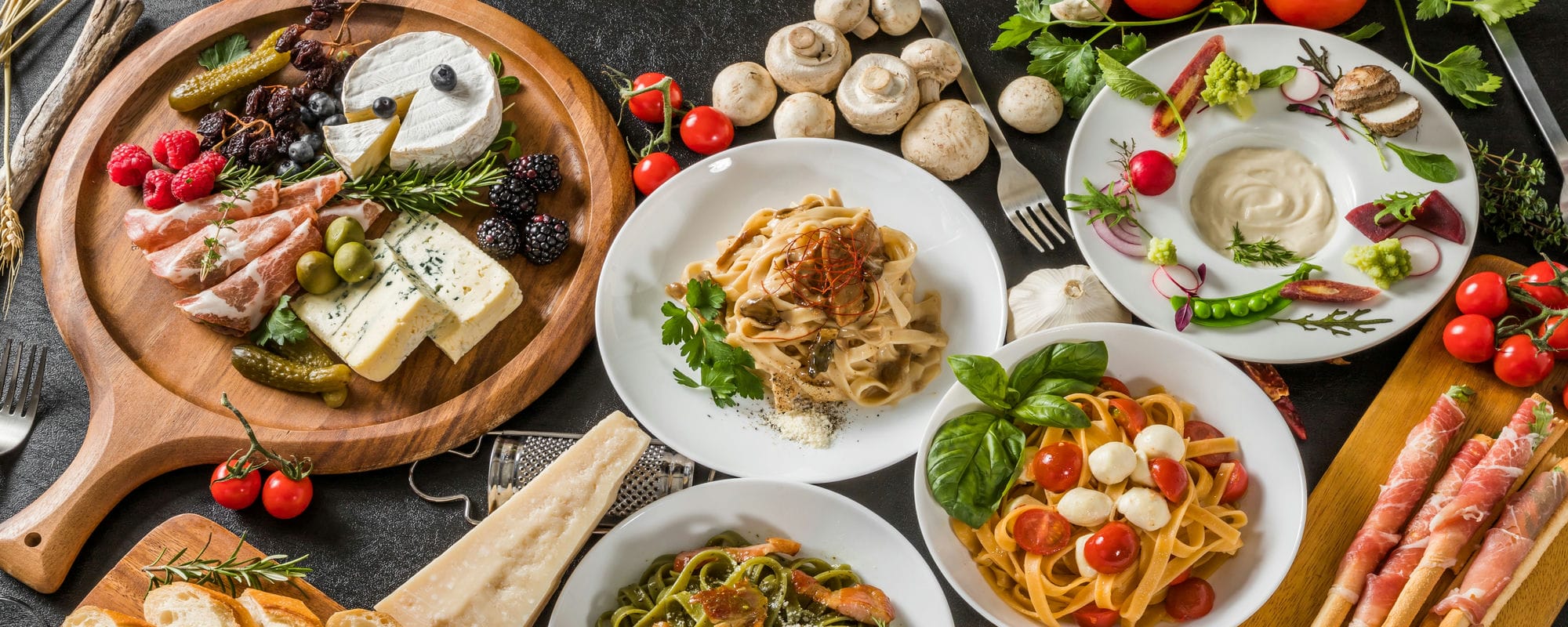
Image Source: Google
Italian cuisine is renowned worldwide for its rich flavors, fresh ingredients, and culinary traditions that have been passed down through generations. From the comforting simplicity of pasta dishes to the indulgent delights of decadent desserts, Italian food embodies a passion for good food and quality ingredients that is unmatched. Let's delve into the essence of Italian cuisine and explore some of the key elements that make it so beloved around the globe.
The Art of Pasta
Regional Varieties
- Italy is home to a diverse range of pasta shapes and styles, each hailing from a specific region.
- From the long and thin strands of spaghetti in the south to the tube-shaped rigatoni in the north, there is a pasta shape for every sauce and occasion.
Traditional Recipes
- Italian pasta dishes are often simple yet incredibly flavorful, relying on a few key ingredients to create a delicious meal.
- Classics like spaghetti carbonara, fettuccine alfredo, and penne all'arrabbiata showcase the beauty of Italian simplicity.
Fresh Ingredients
- Italian pasta is typically made with just a few quality ingredients, such as durum wheat flour, eggs, and water.
- From homemade pasta dough to locally sourced vegetables and herbs, freshness is key in Italian cooking.
Decadent Desserts
Rich Flavors
- Italian desserts are known for their rich, indulgent flavors that satisfy even the sweetest of cravings.
- Ingredients like creamy mascarpone cheese, decadent chocolate, and fragrant citrus fruits feature prominently in Italian sweets.
Time-Honored Recipes
- Many Italian desserts have been enjoyed for centuries, with recipes passed down from generation to generation.
- Classics like tiramisu, panna cotta, and cannoli continue to be beloved around the world for their timeless appeal.
Artisanal Touch
- Italian pastry chefs are renowned for their attention to detail and dedication to craftsmanship.
- From delicate pastries to intricate decorations, Italian desserts often reflect a true artisanal touch.
The Importance of Family and Tradition
Family Meals
- In Italy, mealtime is a sacred tradition that brings families together to share food, stories, and laughter.
- From Sunday dinners to festive celebrations, food plays a central role in family gatherings.
Culinary Heritage
- Italian cuisine is deeply rooted in tradition, with recipes often passed down through families for generations.
- The culinary heritage of Italy is a source of pride for many, preserving the flavors and techniques of the past.
Regional Diversity
- Each region of Italy has its own culinary specialties and traditions, reflecting the diverse landscapes and cultures of the country.
- From the seafood-rich dishes of the coast to the hearty stews of the mountains, Italian cuisine is as varied as it is delicious.
Innovation and Evolution
Modern Twists
- Chefs in Italy and beyond are constantly reimagining traditional dishes to create new and exciting flavor combinations.
- From fusion cuisine to molecular gastronomy, Italian food continues to evolve while staying true to its roots.
Sustainable Practices
- As awareness of environmental issues grows, many Italian chefs are embracing sustainable practices in their kitchens.
- From sourcing local ingredients to reducing food waste, sustainability is becoming an integral part of modern Italian cuisine.
Culinary Influence
- Italian cuisine has had a profound influence on food culture around the world, shaping the way we eat and cook today.
- From the rise of pizza and pasta chains to the popularity of gelato and espresso, Italian flavors are beloved globally.